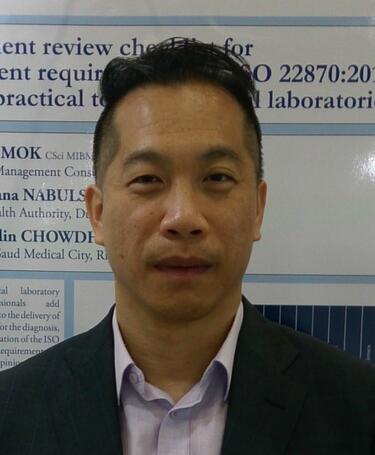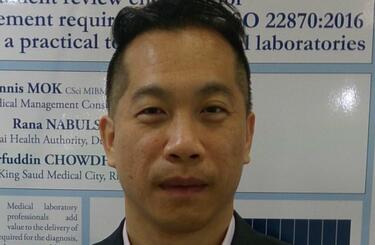
The vital role of UKAS accreditation in Covid-19 testing

UK Covid-19 testing laboratories should all be accredited, whether in the public or private sector, to maintain standards and create consumer confidence. However, some private laboratories are slipping through the net.
Covid-19 has thrown a public spotlight on the role played by UKAS, the UK’s independent accreditation service, which is appointed by the government to assess and accredit organisations that provide services including certification, testing, inspection and calibration.
These include the many private Covid-19 testing laboratories that have emerged since the outbreak of Covid-19 in the UK in the first few months of 2020.
To maintain standards and consumer confidence, it is vital these laboratories undergo a rigorous accreditation and validation process.
Three-stage process
Since November 2020, UKAS has been working with the Department of Health and Social Care (DHSC) to develop an accreditation process for private providers of Covid-19 testing. Companies that take swabs, test them, or do both, are required to demonstrate they meet minimum standards by progressing through the following three stages:
- Application
- Appraisal
- Accreditation.
Organisations are only officially accredited by UKAS after completing the third stage.
According to UKAS, by October 2021, it had received more than 500 applications for Covid-19 testing/sampling and has accredited 245 public and private sector laboratories/sample-takers.
ISO 15189:2012 accreditation is absolutely vital to ensuring that the diagnostic serviceability of the medical laboratory is maintained
The details of UKAS-accredited organisations are published on the UKAS website, while a list of private providers that have self-declared as meeting the minimum requirements can be found on gov.uk. Providers on this list that conduct Covid-19 sampling and/or testing activities are required to apply for UKAS accreditation and progress through the stages to gain accreditation.
Lab under investigation
The role played by UKAS was highlighted in October when a number of media outlets reported that it had not accredited Covid-19 testing company Immensa Health Clinic Ltd and its sister company, Dante Labs.
This was despite previous assurances to the contrary by the UK Health Security Agency (UKHSA), which had said the lab was accredited to “all of the appropriate standards”.
Immensa has been under investigation in the UK for potentially issuing more than 40,000 false negative Covid-19 tests.
In a statement released in October, UKAS pointed out that, since the beginning of the pandemic, it has been working with the government to provide advice on quality assurance and accreditation of laboratories offering Covid-19 testing. This includes labs that have been supporting the NHS Test and Trace programme and private testing providers.
“Neither Immensa Health Clinic Ltd nor its related company Dante Labs Ltd has been accredited by UKAS,” the statement read, adding that at that stage it had accredited 245 public and private sector laboratories/sample-takers.
“Right course of action”
Dennis Mok CQP MCQI, Chair of the CQI’s Health Special Interest Group, who has a particular specialism in medical laboratory management, believes UKAS took the right course of action.
“Cases like this threaten to derail consumer and media confidence in accreditation processes,” he said. “So I feel it was absolutely the right decision by UKAS to make a strong statement rebutting the claim from UKHSA.
“It is also important to note that ISO 15189:2012 accreditation is absolutely vital to ensuring that the diagnostic serviceability of the medical laboratory is maintained at a technically competent level at all times and, more importantly, that the scope of accreditation includes the detection of SARS-CoV-2 nucleic acid in human specimens.
“Immensa Health Clinic should not be providing Covid-19 testing services unless the accreditation status is clearly communicated to relevant users beforehand.”
Mok added that there had been similar issues in Hong Kong in April 2021, when an unusually high number of preliminary positive results from a non-ISO 15189:2012 accredited medical laboratory led to people being incorrectly quarantined.
“It’s absolutely vital that citizens feel confident about accreditation processes and that they trust the dedicated quality and auditing professionals who deliver them.”
With regular public testing for Covid-19 likely to continue to play a key role for years to come in the drive to combat the pandemic, we all need to keep a close eye on whether appropriate standards and certifications are indeed being achieved.
How to conduct a value-added management system audit
Do your auditees feel that you, as the auditor, add value to their work? Do they request you to audit them again in the future, and value your findings?